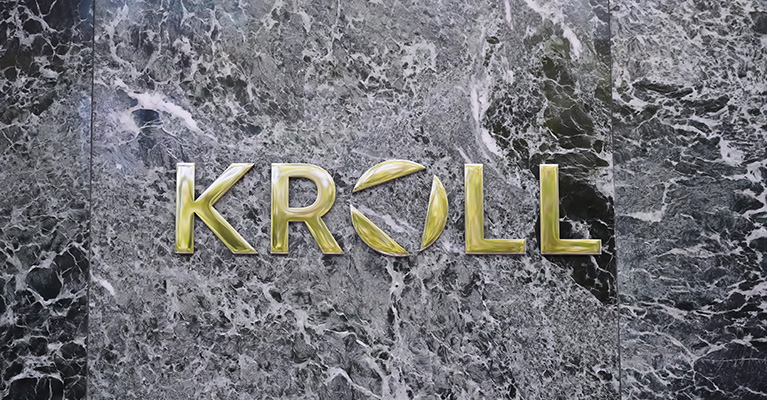Compliance, Risk & Due Diligence

Exploring DORA: 5 Takeaways for Firms in the Final Countdown to the New EU Regulation
The EU’s Digital Operational Resilience Act (DORA) will apply to a broad range of financial companies in Europe from 17 January 2025. The new regulation aims to strengthen the IT security and resilience of firms and, as a result, the broader financial sector. It brings new requirements regarding the way firms manage third-party risks. In this blog, we look at five key takeaways from DORA which companies should prepare...

Navigating Economic Sanctions: Strategies for International Businesses
USA, Russia, EU, Europe, China and UAE are among many jurisdictions that have recently imposed economic sanctions on foreign companies and individuals, in response to alleged human rights violations, geopolitical tensions or breaches of international law. Any company operating internationally could face legal and financial penalties if they or their third party are found to be in breach of such sanctions. However, companies...

Navigating Financial Risk in a Fluctuating Economy
The global economy in 2024-25 is characterized by fluctuations in inflation, material costs and growth rates across different jurisdictions. Only organizations that can identify and manage these risks will be able to successfully navigate this challenging economic environment. In the latest blog in our ‘ How to Do Business in the Challenging Global Environment of 2024/25’ series, we summarize the main financial trends...

Geopolitical Risk: An Increasing Concern for International Businesses
The global media headlines of recent years have been dominated by geopolitical issues. From conflicts in Ukraine and the Middle East to major elections, geopolitics have a direct impact on economies. They also expose international businesses to financial, strategic, legal and reputational risks. In the latest blog in our ‘How to Do Business in the Challenging Global Environment of 2024/25’ series, we look at some of the...

What the Updated Wolfsberg Principles Mean for Financial Due Diligence
The Wolfsberg Principles are widely regarded as authoritative guidance for how financial institutions should respond to the rising risks of bribery and corruption. New guidance has recently been released for the first time in six years. We unpack its main recommendations of risk factors which should prompt banks to carry out enhanced financial due diligence reports and explain how technology can help to improve and...

The reputation revolution: how technology has transformed adverse media screening to surface more relevant results while reducing staff time
Adverse media screening has become an essential part of a company’s risk management process, both while onboarding third parties and customers and throughout the relationship. In recent years, technological developments have made screening even more effective and efficient at surfacing risks. In this blog, we look at four of the benefits of using technology platforms such as LexisNexis for your negative news screening...

Adverse media screening: what it means and why it is so critical for your company
It is becomingly increasingly important that companies screen their third parties and associates against negative news sources from around the world. This can help them to identify reputational risks, as well as commercial and investment opportunities. In this blog, which is part of our series on adverse media screening, we explore what adverse media screening involves, how it can help your company, and how data and technology...

Five things for your company to think about to transform its risk management with effective adverse media screening
Adverse media screening can transform a company’s reputation risk management operation and drive new business opportunities. But amid heightened risks of online misinformation, a careful strategy is required to implement an effective adverse media screening process. This blog suggests five questions you should think about to build a best practice negative news screening operation. It then looks at how adverse media screening...

What the Kroll Report Means for Your Business and How it Manages Third Party Financial Crime Risk
This year’s Kroll Fraud and Financial Crime Report found companies are growing increasingly concerned that third parties are driving a higher risk of financial crime. We read through the report to pull out lessons for companies from this survey of 400 executives across 8 countries. By implementing these lessons–with help from LexisNexis–firms can improve their management of third party risk. “Third-party gatekeepers...

Six Things to Know About Emerging HRDD Regulations
Millions of companies around the world have been impacted by regulations which mandate them to carry out ESG and human rights due diligence (HRDD in the last few years–or they soon will be. These regulations bring new legal, financial, strategic and reputational risks for firms. However, navigating this regulatory landscape is further complicated by disparate requirements across jurisdictions and the nuanced interpretations...

What the Ukrainian War Has Meant for Third Party Risk Management
From Stricter Sanctions to Broken Supply Chains: What the Ukrainian War has Meant for Third Party Risk Management February 2024 will mark two years since the latest conflict in Ukraine began. As well as its tragic impact on so many lives, the war has also brought new third party risks which companies need manage–or face supply chain interruptions or even enforcement action by regulators. In this blog, we look at the...

If You Haven’t Addressed These 5 Third-Party Risks, You’re Behind the Curve
Third parties help companies to deliver their products and services, but they also expose them to regulatory, financial, strategic and reputational risks. In the latest blog in our third party risk series, we look further at five key third party risks facing your company. Then, we explain how companies can mitigate them by investing in the right data and technology to support an effective compliance operation. 1. Regulatory...

Financial Crime is on the Rise. Here’s How Your Company Can Stay a Step Ahead
Financial crimes such as bribery, corruption and money laundering are becoming more common and more complex. One of the most common reasons for a company becoming implicated in alleged financial crime is its exposure to the activities of its third parties and suppliers. In this blog, we look at the trends in financial crime that your firm should be aware of. We then suggest how companies can improve their third party...

Why We’re Paying Attention to Human Rights & ESG Regulations
Over the last five years, the dominant regulatory trend in global compliance has been the spread of legislation which mandates companies to carry out Human Rights and ESG Due Diligence (HRDD) on third parties and suppliers. This has significant implications for any company operating in a jurisdiction with HRDD regulations–or whose third parties and suppliers operate there. In the latest blog in our Third Party Risk Series...

Four Regulatory Enforcements Against Alleged Third Party Compliance Failures
Global companies have been fined hundreds of millions of dollars for alleged compliance breaches in the last year. Whether the allegations against them related to bribery and corruption or breaches of new human rights due diligence legislation, a recurring theme in many cases was the involvement of third parties. In the first blog in our Third-Party Risk series, we dive deeper into four of those cases and offer clear...

AML Fines are on the Rise. Here’s How to Avoid Them
Anti-money laundering fines are up by 50%. Here's how your company can avoid being next Avoiding a breach of Anti-Money Laundering (AML) regulations–and the fine that follows–should be a priority for any company in 2023. The financial costs of a compliance failure is increasing, with global fines against companies rising by 50% year-on-year. In the latest blog in our AML series, we look some recent global fines for...

Five AML Fines and Lessons
What Companies Can Learn From 5 Recent Fines by Global Regulators for Alleged Money Laundering Alleged breaches of Anti-Money Laundering regulations are leading to increasingly large fines against companies, as we have shown over the course of this AML Risk series . In this blog, we dive deeper into five recent enforcement actions by regulators around the world to find lessons all companies can learn to improve their...

How Companies Can Spot Money Laundering Before the Fine
Prevent and Detect: How Companies Can Spot Money Laundering Before the Fine Companies are receiving ever larger fines for allegedly breaching anti-money laundering regulations–in fact, the total fines issued globally in 2022 was 50% higher than in 2021. As well as the financial hit, compliance breaches inflict significant legal, reputational and strategic damage on companies. It is therefore critical that banks and...

Seven Ways Companies Can Effectively Respond to the Global Spread of New Anti-Money Laundering Regulations
In the last blog in our AML series , we outlined the major developments which are driving rapid regulatory changes across the world. Today, we are going a step further by suggesting seven ways companies should respond to these emerging regulatory risks. Implementing these best practices for compliance and due diligence will not only help companies to meet regulators’ expectations, but it should protect their business...

The Four Major Developments Every Business Should Know About Anti-Money Laundering Regulations
Anti-Money Laundering regulations have changed rapidly in recent years–from Switzerland to Singapore, from Brazil to Bahrain. Building on our whitepaper, ‘AML Compliance: A Global View’, we identify and summarise four major developments which are driving regulatory changes across the world. This blog summarises those changes in order to help companies to prepare for future regulatory interventions. 1. AML regulations...

Financial Crime is on the Rise. Here’s How to Stay a Step Ahead
Financial crimes such as bribery, corruption and money laundering are becoming more common and more complex. One of the most common reasons for a company becoming implicated in alleged financial crime is its exposure to the activities of its third parties and suppliers. In this blog, we look at the trends in financial crime that your firm should be aware of. We then suggest how companies can improve their third party...

Why We’re Paying Attention to Human Rights & ESG Regulations
Over the last five years, the dominant regulatory trend in global compliance has been the spread of legislation which mandates companies to carry out Human Rights and ESG Due Diligence (HRDD) on third parties and suppliers. This has significant implications for any company operating in a jurisdiction with HRDD regulations–or whose third parties and suppliers operate there. In the latest blog in our Third Party Risk Series...

Four regulatory enforcements against alleged third party compliance failures–and what your company can learn from each
Global companies have been fined hundreds of millions of dollars for alleged compliance breaches in the last year. Whether the allegations against them related to bribery and corruption or breaches of new human rights due diligence legislation, a recurring theme in many cases was the involvement of third parties. In the first blog in our Third-Party Risk series, we dive deeper into four of those cases and offer clear...

Navigating PEPs in the UK
In the complex landscape of UK compliance, understanding Politically Exposed Persons (PEPs) is crucial. PEPs are individuals who are or have been entrusted with prominent public functions, and due to their position and influence, they are potentially higher risks for involvement in money laundering or corrupt activities. This group includes not just elected officials and government employees but also their family members...

How to Perform KYC Checks: A Step-by-Step Guide
In today's rapidly evolving business landscape, the importance of Know Your Customer (KYC) checks cannot be overstated. KYC checks are a critical component of compliance strategies, designed to verify the identity of clients and assess potential risks of illegal intentions, particularly in financial transactions. These checks serve as the first line of defence against financial crimes such as money laundering , fraud...